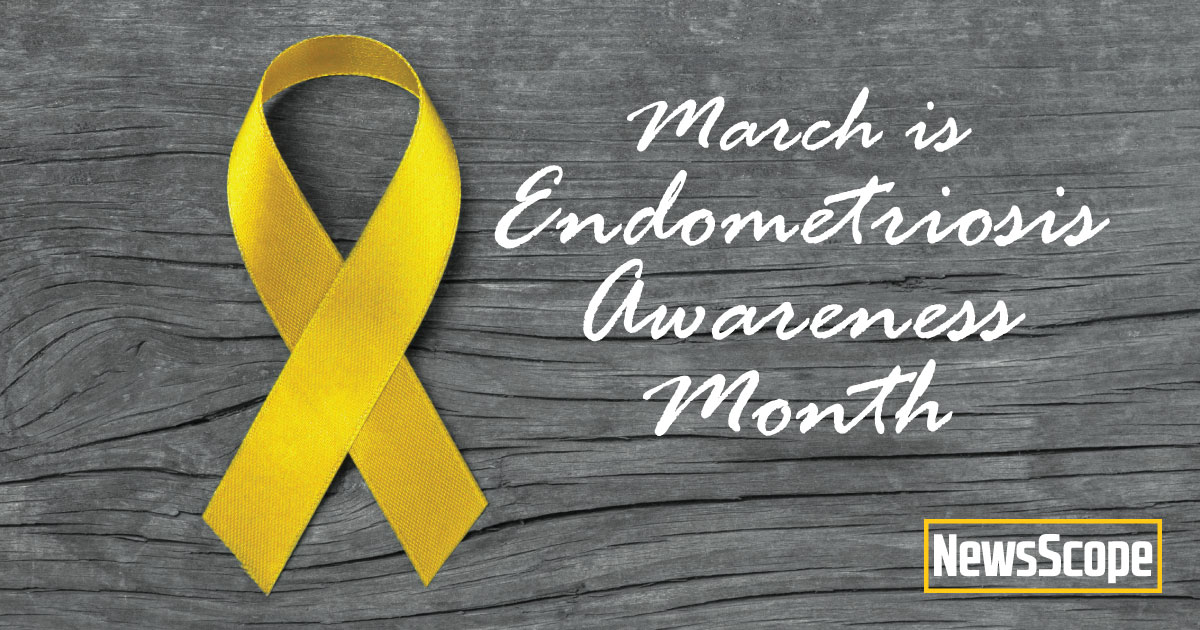Endometriosis Awareness Month
From the Empty Chair at the Table
A few years back I participated in a hospital system robotic surgery steering committee. At the beginning of each meeting, the chair of the committee had everyone in the room introduce themselves and their role. After the introductions, he pointed to an empty chair to his right. “This empty chair represents the patients we care for. As we proceed with this meeting, let us please consider how decisions we make will affect them.”
In March 2017 ACOG president, Thomas Gellhaus, MD, challenged that “we must do our part to raise awareness about the condition with our patients, strive to improve our understanding of the disease, and ensure more timely diagnosis. Raising awareness about endometriosis and increasing its timely diagnosis improves women’s lives…It’s time to talk with our patients more regularly about endometriosis, and ensure more women are getting the care and support they need.” Certainly since 2017, but clearly far earlier, there has been a need for more timely diagnosis of endometriosis. Recent publications have advocated ending the delay in diagnosis by making a clinical diagnosis; solve the problem by “just calling it endometriosis.” Does this approach offer much to the patient if the treatment recommendations or options remain unchanged? Is ending the delay in diagnosis equivalent to ending the delay in treatment and changing the patient experience?
In its Practice Bulletin #114 – Management of Endometriosis, ACOG puts forth one criterium for determining the success of the bulletin – “Percentage of patients with suspected endometriosis receiving oral contraceptives (OC) therapy for pain management before more advanced therapies.” More than 50 years since OC therapy was described to treat endometriosis related pain, this bulletin, first revised in 2010 and re-affirmed in 2018, found this was the best performance measure we could achieve for our patients. I have to think we can set the bar higher.
Once a diagnosis of endometriosis is made, whether clinical or surgical, every patient deserves to be treated as an individual. Focusing on endometriosis related pain forgets the individual represented by that empty chair. Each patient is an individual with different symptoms and different goals. Endometriosis affects patients in various facets of life including pain, childbearing, education, occupation, interpersonal relationships, and many more. Each patient deserves to be helped as an individual and presented with all three of the following treatment approaches: observation, palliation, and surgical management. A provider’s limitations or bias should not limit this discussion of treatments. We must improve our informed consent by placing a greater emphasis on patient autonomy rather than medical paternalism.
Dr Paolo Vercellini wrote, “Management should be shaped on the main clinical problem, taking into consideration a [patient’s] preferences and priorities. Quantitative information should be provided to describe the potential benefits, potential harms, and costs of each treatment alternative. Counseling should be complete and transparent, and the duty of the caring gynecologist is to inform the [patient] on the pros and cons of each option and support [them] in the shared decision-making process. The physician should be able to look the patient in the eye and explain in detail all the available treatments-and not only those that the physician prefers or is able to offer.” (Vercellini, Fertil Steril, 2015).
As we work this March, and in years to come, may we as providers invite that empty chair to be filled and heard. May we encourage patients to be involved in their care management, welcome their insight and preferences, and place a greater focus on collaboration to validate treatment approaches. May we join patients and advocates in pressing for greater interest and governmental help in furthering our understanding of this disease and searching for treatments of the disease, and not merely symptom management.








